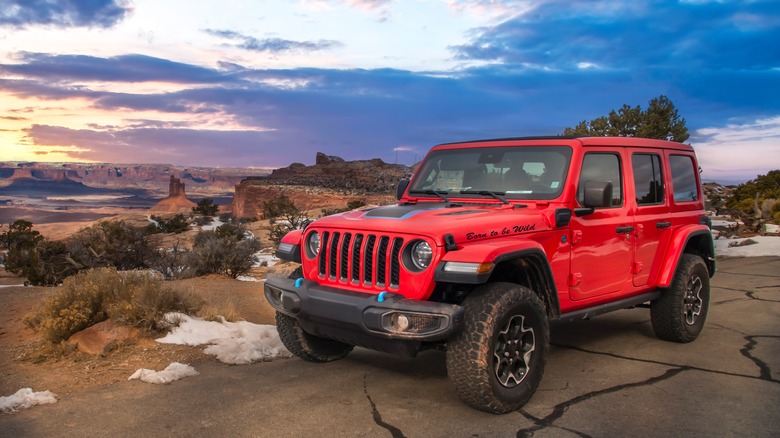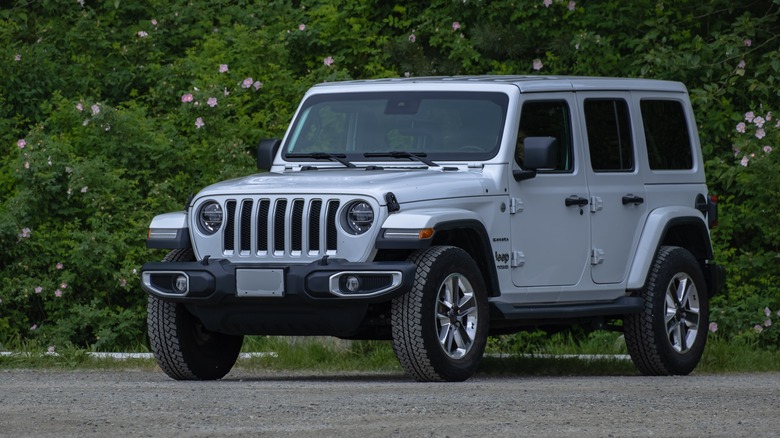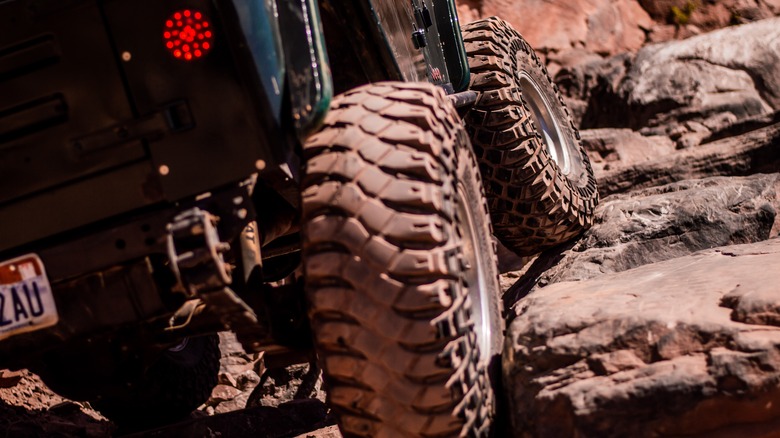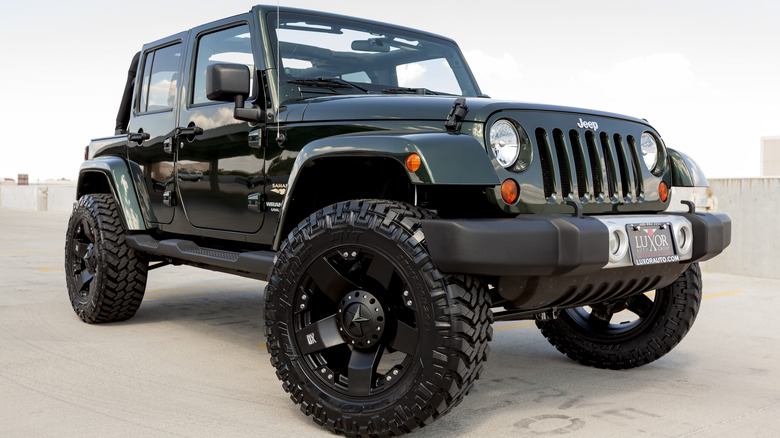How To Choose The Best Tires For Your Jeep Wrangler
Whether you're an outdoor enthusiast who enjoys off-road driving or driving on paved city roads is more your speed, choosing the right tires for your Jeep Wrangler can make the difference between a mediocre and an exceptional driving experience. While you may be tempted to select tires for your Wrangler based on style or personal preferences, if you really want to tap into what your Wrangler can do, choosing tires that suit it is essential.
When it comes to deciding on the perfect tires, consider a few key things: the kind of terrain you'll mostly drive on, your typical driving style, and the weather conditions in your area. After all, the tires you'll need for driving on rock trails are very different from what you'll need on the open highway. The same goes for adapting to different weather conditions; tires that work well in the snow might not be what you need in dry, sunny weather. Once you've thought about these things, you'll be ready to narrow down your options and choose the tires that best align with your driving needs and conditions.
Assessing terrain and driving habits
Off-roading and the Jeep Wrangler seem to go hand in hand, and the image of the Wrangler climbing over rugged hills and splashing through muddy streams is a huge part of Jeep's marketing. However, as so often is the case, reality differs greatly from this idealized image. In fact, according to Jeep's head of design in an interview with ABC News, only about 10% to 15% of Wrangler owners actually venture off-road with their vehicles. Given these numbers, chances are you spend most of your time navigating city streets, suburban roads, or highways.
Whatever the case, before selecting your tires, you need to understand the specific demands of the terrains you'll encounter most often. If you count yourself among the small group of Wrangler owners who spend time off-roading on muddy or rocky trails, you'll need tires with a more aggressive tread pattern and stronger sidewalls for durability and traction. On the other hand, if you mainly use your Wrangler for your daily commute to work, tires that offer a smoother ride, good fuel efficiency, and reduced noise levels will be your best bet.
Understanding tire types and characteristics
Before investing in a set of tires for your Wrangler, it's important to understand the differences between the available types. When selecting tires for the Jeep Wrangler, all-terrain, mud-terrain, and all-season tires tend to be the most common choices, with each type designed for specific road conditions and terrains.
All-terrain tires are a versatile option and suitable for various driving conditions. Their tread pattern balances off-road traction with on-road comfort. Since they perform well on both surfaces, they're an excellent choice if you split your time between different types of driving. However, they come up short when it comes to aggressive off-roading.
If you plan on exploring extreme off-road conditions with your Wrangler, you'll want to invest in mud-terrain tires. These tires have larger, more aggressive tread blocks and deeper voids for superior traction in mud, loose soil, and rocky terrains. Their main drawback is they offer less comfort and can be noisier than other types of tires. However, if you're out enjoying the great outdoors, you may not even notice.
All-season tires are worth a closer look if you'll be spending time in varying weather conditions. These tires are designed to provide good traction on wet and dry roads and can also handle light snow. They're most common on vehicles like passenger cars and minivans primarily driven on pavement. All-season tires offer good fuel efficiency and a comfortable ride but are less capable in heavy snow or off-road conditions than specialized tires.
Importance of tire size and compatibility
The size of your Wrangler's tires will significantly impact its performance, handling, fuel efficiency, and how it drives and feels on various terrains. Larger tires are a popular upgrade, which makes sense If you plan to do a lot of off-road driving. They provide better traction and ground clearance, which can be especially useful when driving through rough and uneven terrain.
However, upsizing your Wrangler's tires could change its on-road handling, leading to changes in steering responsiveness and stability at higher speeds and on paved roads. Using bigger tires can also decrease fuel efficiency due to increased rolling resistance, requiring more power from the engine to maintain speed. Before purchasing tires for your Wrangler, you want to be sure they're compatible with your vehicle's specifications to ensure you don't run into clearance issues with suspension components, fenders, or body parts when upsizing tires. Remember that larger tires will require modifications, such as lift kits or adjustments to the suspension system, to accommodate the increased size without impacting the vehicle's performance.



